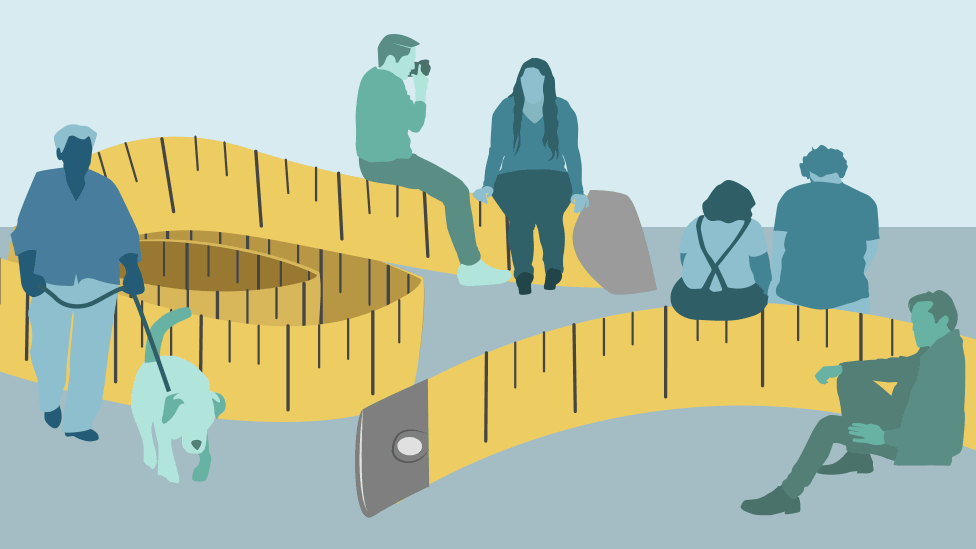Britain's Fat Fight: Why we're losing
- Published
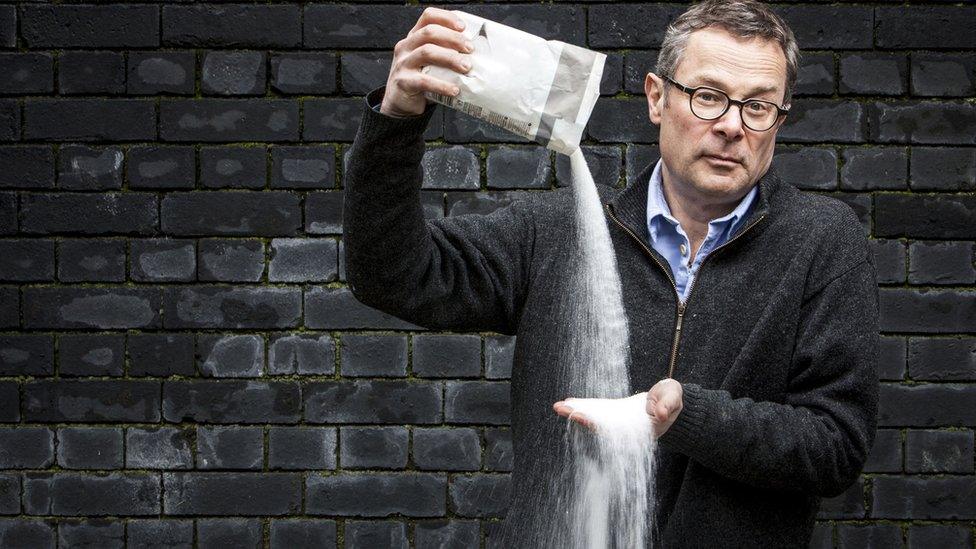
Everywhere we go these days, we are urged to buy food and eat it - and it's almost never good, not vegetables or fruit or well-balanced meals, but crisps, chocolate, burgers, fizzy drinks and sugary breakfast cereals.
They're cleverly designed, tempting and honed by the fierce competition of the food industry. It's like an arms race for our appetites.
Unfortunately, we are the losers - because this all makes it incredibly difficult to eat well.
And it's causing a health crisis like we've never seen before. In the UK, obesity is already the leading cause of premature death after smoking.
Today, 25% of us are obese. If things don't change, by 2050 that will be 50%.
It makes me wonder if I want to live until then (I'll be 85!). Because if I do, and we have indeed hit that horrendous statistic, the country will be buckling under an epidemic of type 2 diabetes, cancers, amputations, strokes and heart attacks.
We'll be a nation of the stumbling sick. And, for what it's worth, Britain's Fat Fight, the series I've made for BBC One, will have made no impact whatsoever.
Kids' 'supermarket sweep'
Not that it's up to me to solve the problem, or even any of the tireless campaigners or researchers I've met along my journey.
We have a government and an NHS who will surely have a far bigger problem if this isn't sorted out.
And we have a food industry whose combined sense of social responsibility, or lack of it, will pretty much determine the future health of the nation.
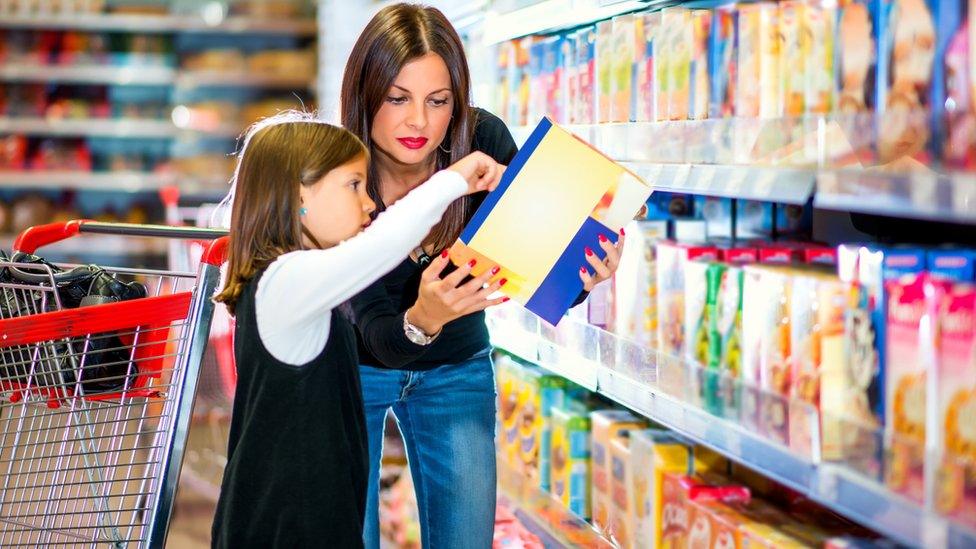
It's no surprise perhaps that "Gov UK" and "big food" are high on the list of those I want to talk to.
I start with two of the world's best-known breakfast cereal makers, Kellogg's and Nestle, sent in their direction by a bunch of mums and dads who have just watched their kids do an adult-free supermarket sweep.
The young shoppers end up parked in the cereal aisle, loading their trolleys with box after cartoon-decorated box of sugar-added breakfast cereals.
What the parents want to know is this: if almost all supermarket own-brand cereals now use the coloured traffic-light labels that flag up excess sugar (or fat, or salt) with a bright red marker, how come two of the biggest breakfast brands in the world are ducking out?
Why do they continue to baffle us with monochrome numbers and percentages in tiny little boxes, hidden well away from the un-missably colourful antics of Tony the Tiger, or the cheeky Coco Pops monkey?
I have some fun trying to get Nestle and Kellogg's to answer this simple question on camera. Of course neither of them wants to be interviewed. But turning up at their HQs with a camera crew in tow as their employees arrive at work can be a surprisingly effective way of focusing the corporate mind.
Blame game 'no help'
In the past, I might have argued the responsibility for change is essentially a personal one.
Only you can decide what you put in your mouth, right? But after 16 months working on these films, I'm completely convinced that a culture of blaming and shaming individuals helps no-one - and completely misses the point.
We haven't turned into a nation of lazy, greedy people in a single generation. Biological evolution doesn't work like that.
Business, on the other hand, can evolve at a terrifying rate. And the business of designing and selling mass-produced food has rapidly outstripped our ability to defend ourselves against it.
The fact that two-thirds of us are now overweight proves this is not a problem of the unlucky or weak-willed few. It's a problem we all face. The idea behind Britain's Fat Fight is that it's time we faced it together.
What do you think? Join the debate on our Facebook page, external.
Behind the devastating statistics are of course real human stories - millions of them.
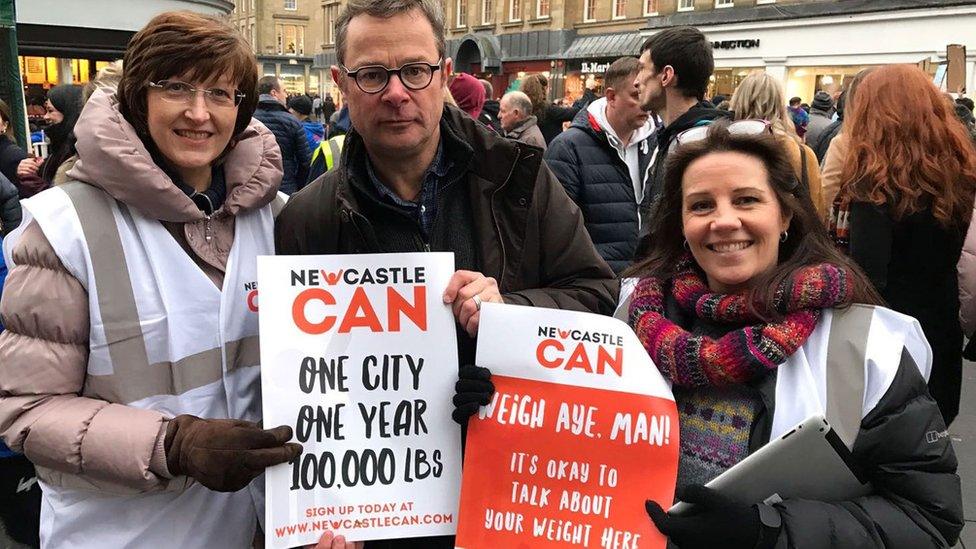
Launching the Newcastle Can campaign
Janet lives with her father, Jim, who has had his lower leg amputated as a result of his type 2 diabetes.
She dreams of losing weight not just to avoid a similar fate but so she can go surfing and skiing with her daughter Amara.
But as a single mum in a full-time job, dashing home to cook for her daughter and her dad, Janet is too stressed to even get started on her diet.
She ends up cooking herself a special supper - and not always a healthy one - to eat after Jim and Amara have gone to bed.
'My wine intake equals 22 cans of coke'
I met her as part of Newcastle Can, external - an initiative I set up to get the city coming together to eat more healthily, be more active, and lose some weight.
It's easier to tackle these challenges together than alone.
More than 7,500 people around the city have signed up, and between them they've lost over 80,000lb in weight. By way of a reality check, that's still 20,000lb short of the 100,000lb we've been shooting for, and it's taken 16 months - not the year we set for the challenge.

You may also be interested in:

Losing weight is incredibly hard. I know this partly because my own weight has been up and down over the years.
Early in the first film my GP warns me that my 36in (93cm) waist and BMI, external of 26.2 puts me firmly in the overweight stats - and at increased risk of developing type 2 diabetes.
This is despite the fact that I'm quite useful in the kitchen, I don't eat a lot of takeaways, and I love my veg.
I thought I knew my weaknesses: cheese (and biscuits), chocolate (and puddings generally) and wine with my dinner.
But it is still a shock when I work out that, in terms of calories, my weekly wine intake is roughly equivalent to 22 cans of coke.
When it comes to our health, it's amazing how adept we are at deceiving ourselves and tweaking our narratives to avoid making changes.
After three months of filming with Janet, I am sensing she is really stuck - and I decide it's time to find a way to jump start her journey.
So I tell her she doesn't need to lose weight in order to go surfing and suggest we try it together - the very next day. There isn't time to discuss it or wriggle out. We are doing it.
It leads to one of my favourite moments making the series, sitting on Tynemouth Beach with Janet after two hours together, in thick wetsuits, in the chilly November sea.
She is beaming. She has spent a good deal of time rolling in the surf in various undignified positions (as have I) but she has also caught several excellent waves, and loved every minute of it. Four months later, she has lost nearly four stone.
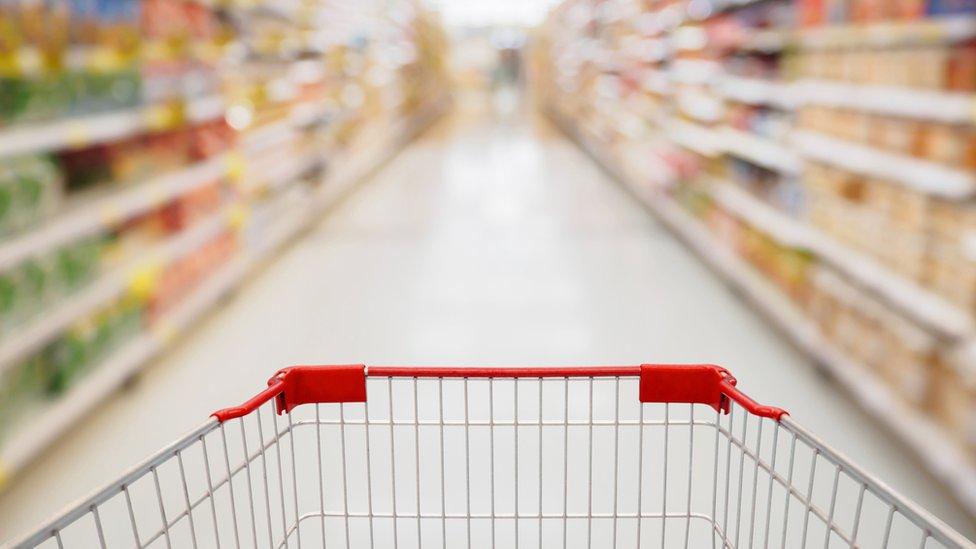
It's about what we put in our trolleys
What's got to change in the long term to make it easier for us to eat better, get fitter and live longer?
And who's going to make it happen? What, for instance, will our government do? Will it curb the excesses of junk food advertising, especially when targeted at kids?
Will they support our GPs and nurses to provide sensitive and practical diet advice and better preventative care? Will they educate the next generation to feed themselves better?
In the end, me asking big companies to change their ways, and our government what it is doing about obesity and healthier eating, will only ever have a limited effect.
But you telling them, with your shopping trolley or your vote, what changes you want to see - now that, I'm absolutely certain, can make a massive difference.
Britain's Fat Fight with Hugh Fearnley-Whittingstall is on BBC One at 21:00 on Wednesday, 25 April, and will be available on iPlayer afterwards.
- Published24 April 2018
